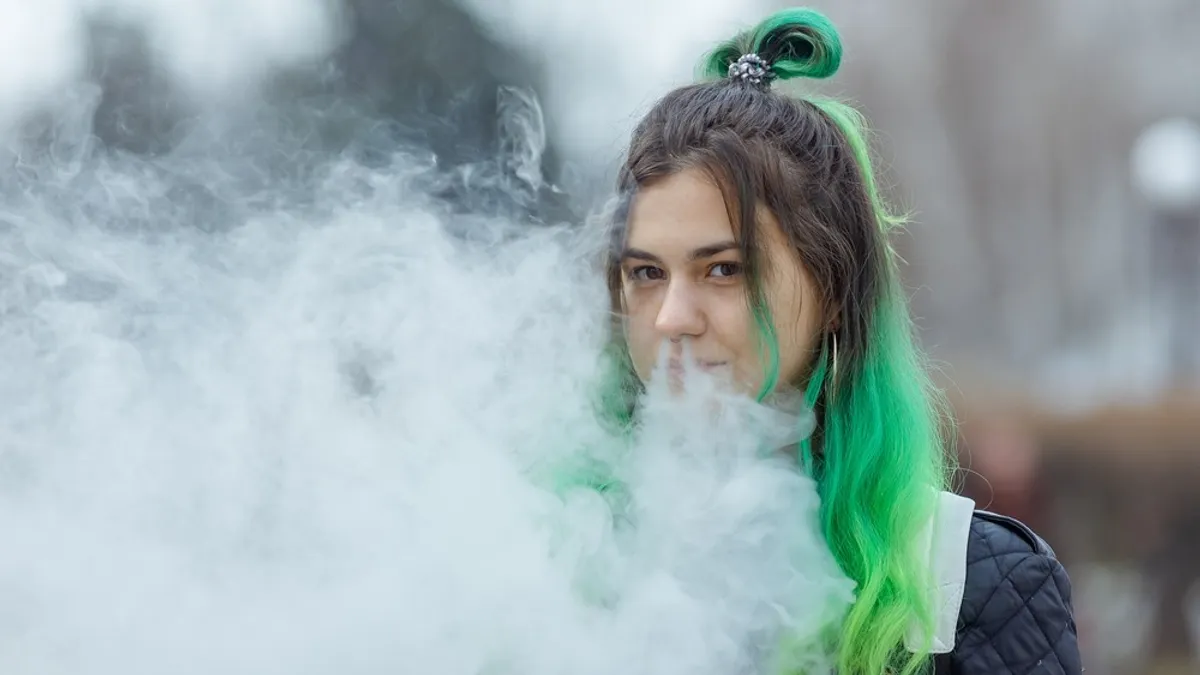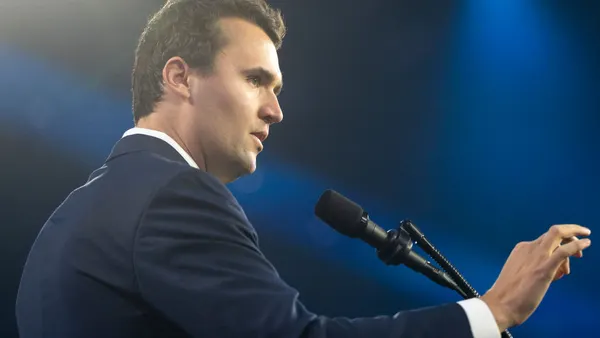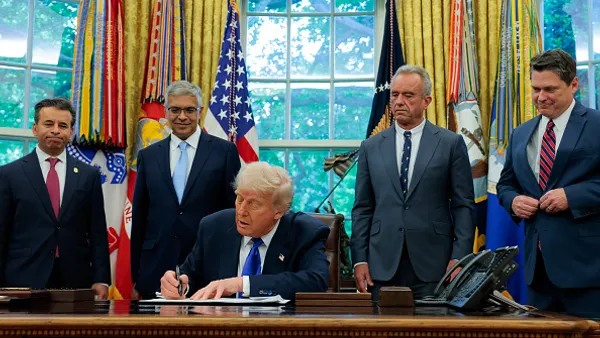UPDATE: June 27, 2022: The FDA’s sales ban on Juul Labs Inc. products was temporarily blocked Friday by a federal appeals court after the e-cigarette maker filed an emergency motion.
Dive Brief:
- Juul Labs Inc. must pull all of its e-cigarette products from the U.S. market after the U.S. Food and Drug Administration on Thursday issued marketing denial orders to the company. The decision comes amid ongoing concern over the rise in teen vaping.
- The orders cover the commercial distribution, import and retail sale of the Juul device and four types of JUULpods, but do not restrict individual consumers from possessing or using those products.
- In a statement that recognized concerns about the marketing of these products to young people, FDA Commissioner Robert M. Califf said, “The agency has dedicated significant resources to review products from the companies that account for most of the U.S. market. We recognize these make up a significant part of the available products and many have played a disproportionate role in the rise in youth vaping.”
Dive Insight:
“Though this is positive in that there will be fewer vape products accessible to youth and adolescents, the use of Juul by students is far less than that of other [vaping] products that offer a variety of flavors like cotton candy and fruit,” said Jeanie Alter, executive director of the American School Health Association.
The FDA’s ruling comes as lawsuits against Juul Labs had regained traction in the wake of the COVID-19 pandemic.
A Washington judge ruled in April that the company intentionally targeted teenagers with advertising and misled the public about vaping’s addictiveness, requiring it to pay the state $22.5 million. Other lawsuits led to payouts in Arizona, Louisiana and North Carolina.
School districts in several states — including Anne Arundel County Public Schools in Maryland and a majority of districts in Utah — had also filed or joined lawsuits, or considered doing so, against Juul Labs.
In addition, some school districts have diverted resources, or tried to, toward solutions such as vaping detectors and rethinking disciplinary policies to favor preventative education and intervention over punitive measures. Phil Federico, partner at law firm Baird, Mandalas, Brockstedt, Federico and Cardea, previously told K-12 Dive that schools joining cases against Juul could potentially recover damages for resources diverted and invested to addressing in-school vaping.
“These products are still widely available and attractive to young people,” Alter said. “As such, schools still need to include vaping and vape products in their school wellness policies and communities must continue working to limit access for youth.”
In its statement on the Juul Labs ruling, the FDA noted it has authorized a total of 23 electronic nicotine delivery system products.
Naaz Modan contributed to this story.







 Dive Awards
Dive Awards



